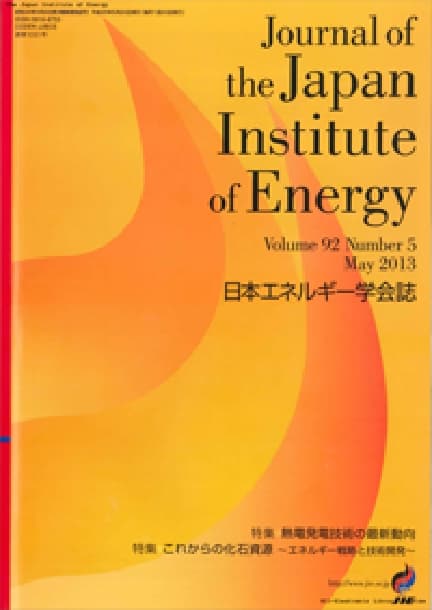Study on the Existence Form of Hydroxyl Groups in Coals Reactivity of Chromic Oxide Ion with Hydroxyl Groups in Coals
Shigeki FURUKAWA, Masaki OKADA, Satoshi HARADA, Yohichi SUZUKI
pp. 417-422
DOI:
10.3775/jie.83.417Abstract
The reaction of chromic oxide ion in aqueous solution with twelve kinds of coal samples has been studied. It was found that the chromic oxide ion reacted selectively to catechol type compounds at 273K by the experimental result for some kinds of coal model chemical compounds. The existence ratio of catechol type components in each coals was estimated at 273K.
Readers Who Read This Article Also Read
Journal of the Japan Institute of Energy Vol.83(2004), No.8
Journal of the Japan Institute of Energy Vol.83(2004), No.12
Journal of the Japan Institute of Energy Vol.83(2004), No.11










